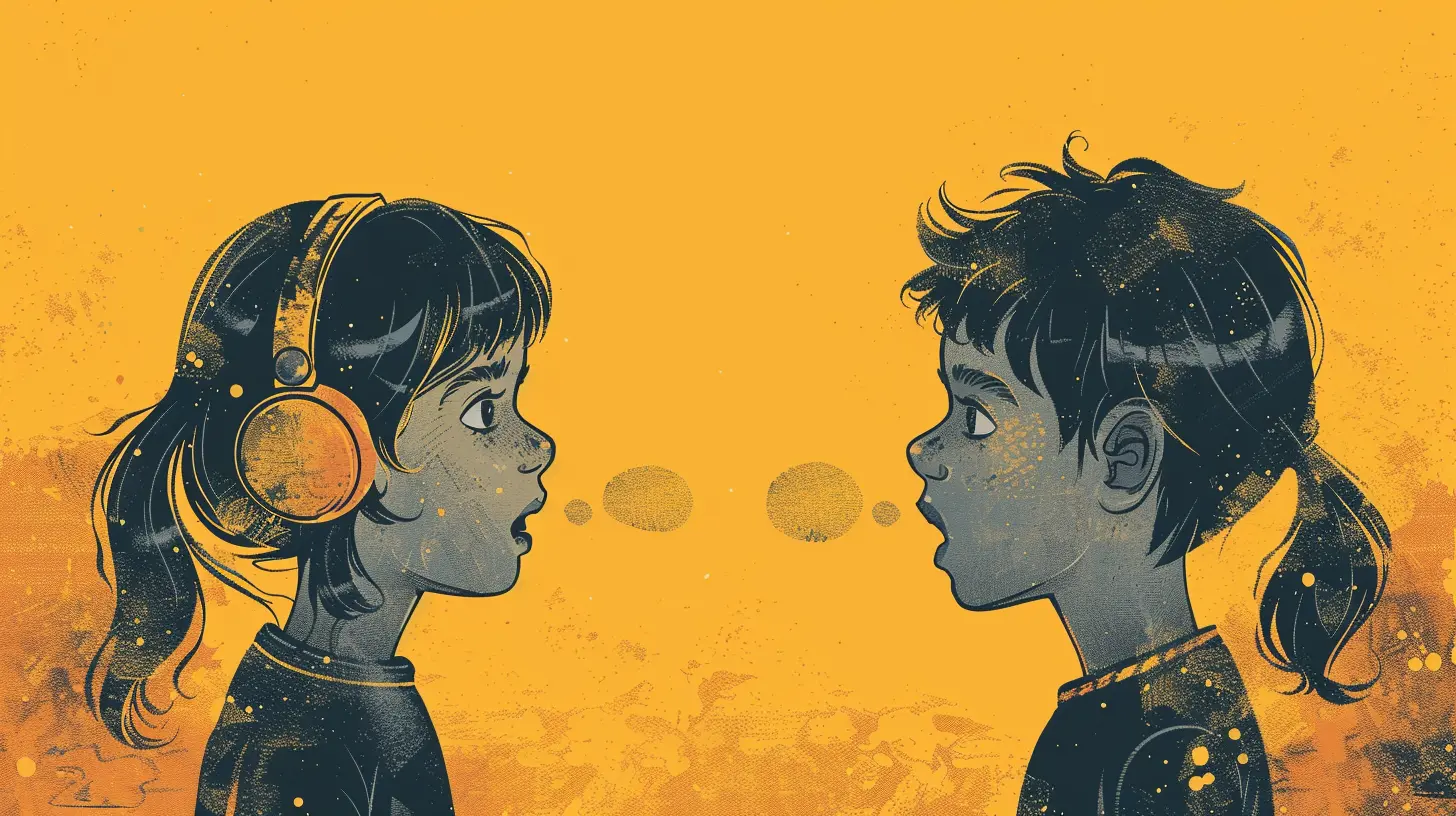The Role of Listening in Conflict Resolution
6 June 2025
Let’s be honest—conflict is a part of life. Whether it’s a disagreement with your co-worker, a heated debate with your roommate, or a full-on blow-up in a relationship, we all face conflict at some point. But here’s the twist: the way we handle it? That makes all the difference. And believe it or not, listening—yes, something as simple as listening—is the secret sauce that can turn conflict into connection.
In this article, we’re going to dive deep into the role of listening in conflict resolution. We’ll break down why it’s not just about staying silent while the other person talks, how you can become a better listener, and why sharpening this skill can seriously change your life (and maybe even save your relationships).
Why Listening Matters More Than You Think
Let’s kick things off with a bold statement: Most conflicts don’t get worse because of disagreement—they escalate because people stop listening.Think about it. How many times have you felt misunderstood during an argument? That rising frustration, the urge to cut someone off mid-sentence, or worse—shut down completely? That’s what happens when listening breaks down.
Listening shows respect. It tells the other person, “I see you. I hear you. What you’re saying matters to me.” And in the middle of a tense conversation, that validation can be incredibly powerful.
Here’s the deal: Conflict, at its core, is emotional. So, when someone feels heard, their emotional defenses drop—and that’s when the real work of finding solutions begins.
The Two Types of Listening: Are You Doing It Right?
Not all listening is created equal. There’s passive listening and active listening—and only one of them actually helps resolve conflict.Passive Listening: Just Nodding Along
This is surface-level listening. You’re technically hearing the words but not really soaking them in. You might be:- Nodding without understanding
- Thinking about what you’ll say next
- Waiting for your turn to talk
It’s like watching a movie with the subtitles off. You see the action, but you don’t truly grasp the message.
Active Listening: The Game-Changer
Active listening is where the magic happens. It’s intentional. It’s focused. And it says, “I genuinely want to understand you.”Here’s what it looks like:
- Making eye contact
- Nodding and using short verbal cues (“I see,” “Go on,” “That makes sense”)
- Asking clarifying questions
- Summarizing what you heard
Example: “So, if I’m understanding you right, you were frustrated because I came late without telling you, and that made you feel overlooked?”
Boom. That’s active listening in action—and it almost instantly defuses the situation.
How Listening Reduces Tension in Conflicts
Let’s paint a picture. Imagine you’re in an argument, and the other person suddenly asks, “Can you help me understand why this upset you?” instead of saying, “You’re overreacting.”Feels better, right?
That’s because good listening:
1. Validates Emotions – People want to be heard more than they want to be right.
2. Builds Trust – Listening implies respect and openness, even in disagreement.
3. Slows Down Reactions – It lets both sides breathe and process before responding.
4. Clarifies Misunderstandings – Sometimes conflicts happen because of miscommunication. Listening clears that up.
The bottom line? Listening turns down the emotional heat.
Barriers to Effective Listening (and How to Overcome Them)
Let’s be real. Listening sounds easy, but it’s not. There are roadblocks that pop up, especially when emotions run high.Here are some common ones and how to kick them to the curb:
1. Internal Noise
That voice in your head that’s forming a rebuttal before the other person finishes talking? That’s internal noise.👉 Solution: Practice mindfulness. Stay present. Focus on their words, not your inner debate.
2. Emotional Triggers
Feeling attacked? Defensive? That’s a sign emotion is hijacking your ears.👉 Solution: Take a breath. Pause the conversation if needed. Respond, don’t react.
3. Distractions
Phones buzzing, TVs blaring, or just a chaotic environment—it’s hard to focus.👉 Solution: Create space for real conversation. Put away distractions and give your full attention.
4. Bias and Judgments
Assuming what someone means before they finish speaking shuts down real understanding.👉 Solution: Stay curious. Ask, don’t assume. Remember: everyone has a story behind their stance.
Listening as a Problem-Solving Tool
When we truly listen, we get to the root of the issue—not just the surface symptoms. It’s like peeling an onion. Each layer reveals more of what’s really going on.Let’s say your team member missed a deadline, and you’re frustrated. You could snap, or—you could ask, “What challenges did you face with the project?” That question, paired with listening, might reveal deeper issues like unclear expectations or burnout.
Now, instead of blaming, you’re building. You’re solving the real problem.
Real-Life Applications: Listening in Everyday Conflict
Here’s where it gets practical. Listening isn’t just for therapy sessions or boardrooms. It applies everywhere:Relationships
Arguments with a partner? Try this: Instead of defending yourself immediately, say, “Tell me more about how that made you feel.” It’s not weakness—it’s wisdom.Workplaces
Disagreements happen at work all the time. Instead of saying, “You’re not making sense,” try, “Can you walk me through your thinking?” That opens doors, not walls.Friendships
Hurt feelings, miscommunication—it’s all part of friendships. Listening helps heal. Sometimes, people just want to vent and feel supported.Listening Doesn’t Mean Agreeing (And That’s Okay)
Here’s something important: Listening isn’t about agreeing with everything someone says. Let’s repeat that.Listening. Is. Not. Agreement.
It’s understanding. You can totally disagree with someone while also acknowledging their perspective. That’s where maturity and emotional intelligence step in.
Listening creates space for dialogue, not division.
How to Become a Better Listener (Starting Today)
So, how do you get better at this? It’s like developing a muscle—it takes practice.Here are some quick tips:
- 🧠 Stay Present: Avoid drifting into your thoughts.
- 🤔 Reflect & Confirm: Repeat what you heard to confirm understanding.
- ❓ Ask Questions: Dig deeper with curiosity.
- 🤐 Don’t Interrupt: Keep your lips zipped until it’s your turn.
- 😌 Control Reactions: Stay calm, even when it’s hard.
- 💬 Use Body Language: Eye contact, nodding, and open posture go a long way.
Try these out during your next tough conversation. You’ll be amazed at how differently things unfold.
Teaching Listening Skills: A Must for Educators
Let’s shift gears for a sec. If you’re an educator, teaching listening isn’t just a soft skill—it’s a superpower. Students need to feel understood, especially when they’re struggling socially or academically.Incorporate listening exercises into classroom activities. Use role-playing scenarios. Teach empathy through storytelling. By modeling effective listening, educators not only reduce conflict but also encourage a culture of respect and collaboration.
Final Thoughts: The Ripple Effect of Good Listening
When you become a better listener, your world starts to change. Conflicts become less about winning and more about understanding. Relationships deepen. Tensions ease. Walls crumble.Sure, it takes effort. You have to put your ego aside, stay curious, and really tune in. But the payoff? Totally worth it.
So next time you’re in the middle of a disagreement, ask yourself this: “Am I really listening—or just waiting to reload?” Big difference, right?
Let’s all aim to listen not just with our ears, but with our hearts.
all images in this post were generated using AI tools
Category:
Communication SkillsAuthor:

Olivia Chapman
Discussion
rate this article
3 comments
Camille McNulty
Listening transcends mere hearing; it is an active engagement that fosters empathy and understanding. In conflict resolution, true listening dismantles barriers, revealing underlying emotions and perspectives. By valuing each voice, we create a space where collaboration thrives, ultimately transforming discord into dialogue and paving the way for genuine resolution and connection.
June 18, 2025 at 3:01 AM

Olivia Chapman
Thank you for your insightful comment! I completely agree that active listening is vital in conflict resolution, as it not only fosters understanding but also bridges gaps between differing perspectives.
Remi Stone
In the dance of discord, listening is the balm, A gentle whisper that weaves peace like a calm. Through open hearts and patient ears, Understanding blooms, dissolving fears. In silence, we find the strength to heal— Together, we craft a brighter ideal.
June 9, 2025 at 3:40 AM

Olivia Chapman
Thank you for beautifully capturing the essence of listening in conflict resolution. Your words highlight how empathy and understanding can transform discord into harmony.
Will Adkins
Listening in conflict resolution: the secret ingredient! Think of it as unlocking a treasure chest of understanding—who knew getting along could be this much fun? Let’s tune in!
June 6, 2025 at 4:30 AM

Olivia Chapman
Thank you! I love the analogy of listening as a treasure chest. It's true—effective listening can transform conflicts into opportunities for understanding and connection. Let's keep tuning in!



